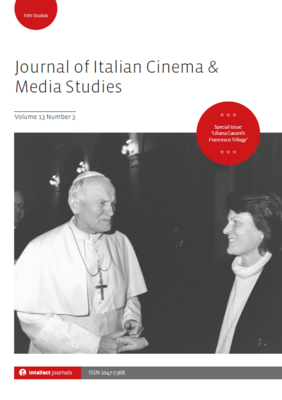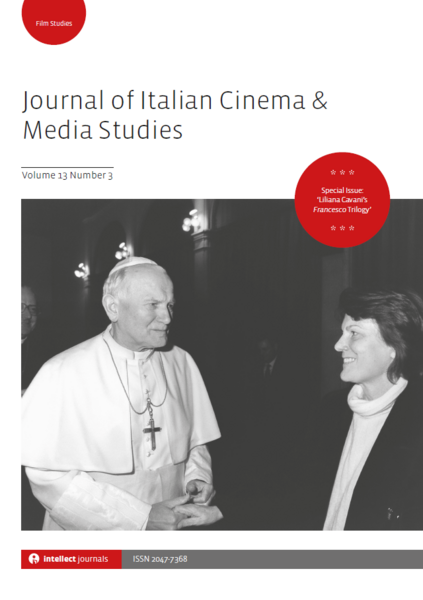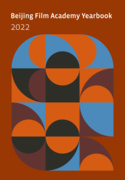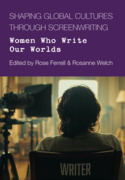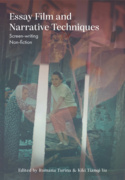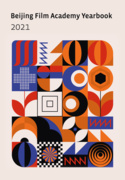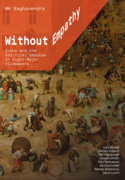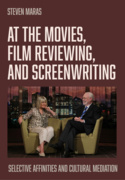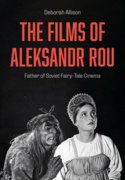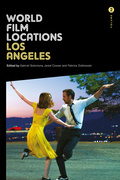Principal Editor
Flavia Laviosa
Wellesley College, USA
flaviosa@wellesley.edu
Advisory Board
Giorgio Bertellini
University of Michigan, USA
giorgiob@umich.edu
Milly Buonanno
Sapienza University of Rome, Italy
milly.buonanno@fondazione.uniroma1.it
Frank Burke
Queen’s University, Canada
burkef@queensu.ca
Stephen Gundle
University of Warwick, UK
s.gundle@warwick.ac.uk
Reviews Editors
Annachiara Mariani
University of Tennessee, USA
amariani@utk.edu
Brendan Hennessey
Binghamton University, USA
bhenness@binghamton.edu
Jim Carter
Boston University, USA
jcarter@bu.edu
Editorial Assistants
Glen Bonnici
University of Malta, Malta
Ivy Buck
Wellesley College, USA
Rory Conlin
Wellesley College, USA
Rachel Grasso
University of Toronto, Canada
Daniele Iannucci
University of Toronto, Canada
Giovanna Lisena
University of Toronto, Canada
Nora Wagner
Wellesley College, USA
General Call for Papers
Please download and read the full Journal of Italian Cinema & Media Studies (JICMS) Notes for Contributors before submitting to the journal.
JICMS is an English-language forum for theoretical, methodological and critical debate on Italian film and media production, reception and consumption. It provides a platform for dialogue between academics, filmmakers and cinema and media professionals. This peer-reviewed journal invites submissions of scholarly articles relating to the artistic features, cultural themes, international influence and history of Italian film and media. Furthermore, the journal intends to revive a critical discussion on the auteurs, revisit the historiography of Italian cinema and celebrate the dynamic role played by new directors. The journal includes a book and film review section as well as notes on Italian film festivals abroad and international conference reports.
The profound transformation undergone by the rapidly expanding media environment under the impact of digital technology has lead scholars in the field of media studies to elaborate new theoretical paradigms and methodological approaches to account for the complexities of a changing landscape of convergence and hybridization. The boundaries between cinema and media as art forms and fields of inquiry are increasingly hybridized too. Taking into account this evolving scenario, JICMS provides an international arena for critical engagement with a wider range of issues related to the current media environment. The journal welcomes in particular contributions that discuss any aspect of Italian media production, distribution and consumption within national and transnational, social, political, economic and historical contexts.
Within the realm of a post-national and trans-cultural debate, the purpose of JICMS is to refer to Italy as the unifying site for a contemporary discussion on translocal cinema. The journal aims to elaborate a multifaceted definition of Italian cinema, transcending geo-ethnic land and sea borders and moving away from merely celebratory local cinematic experiences. Therefore, the journal also devotes attention to Italophone filmmakers and diasporic, accented or exilic cinema. JICMS is also interested in the artistic intersections between Italian and other international cinemas.
JICMS also invites submissions that examine experimental cinema, video art, short films, long/short feature and documentary animation, original and adapted screenplays, film music (songs and scores), issues of stardom and reception studies. The professional contributions of screenplay writers, art directors, cinematographers, film editors, costume designers and make-up artists are also potential subject areas for submissions.
Interested contributors should send: (1) a 500-word abstract outlining the topic, approach and theoretical bases; (2) the relevant bibliography and filmography and (3) 200-word biographical notes (listing academic publications) to the editor.
Journal contributors will receive a free PDF copy of their final work upon publication. Print copies of the journal may also be purchased by contributors at half price.
Special Issue Call for Papers
Call for Contributions – ‘Doctoral Dissertations’ column
The Journal of Italian Cinema & Media Studies invites contributions for a new column about recent doctoral dissertations. The column is designed to keep scholars and teachers up to date regarding the defence and publication of graduate research into any aspect of Italian cinema and/or media studies while promoting access to an emerging generation of international scholarship. Depending on the number of submissions, the column may publish up to three entries per issue. Proposals are welcome for dissertations defended during the past two years.
Entries will appear in the form of short dissertation abstracts and will include the following information: dissertation title, author name, current e-mail address, degree-granting department and school, advisor name and affiliation, ISBN or equivalent identification number, abstract (500 words maximum) and biographical note (100 words maximum). Abstracts will be written in a way that focuses directly on the historical and/or theoretical intervention, including presentation of primary sources, methodology and conclusions. Entries for dissertations written in languages other than English are encouraged, and the column curator will work together with international authors where translation is required.
For inquiries and submissions, write to Jim Carter (jimrc@umich.edu).
Jim Carter holds a Ph.D. in Italian from the University of Michigan and is currently working on a book about industrial culture at Olivetti (1930s through 1950s). His essays on cultural studies have appeared in international publications like Modern Italy and Italian Culture, and he is the co-editor (with Carlo Baghetti and Lorenzo Marmo) of the forthcoming volume Italian Industrial Literature and Film (Peter Lang, Italian Modernities Series). In 2018–19, he was a fellow of the American Academy in Rome.
Call for Contributions – ‘Translations’ and ‘Archival Notes’ columns
Journal of Italian Cinema and Media Studies is introducing two new columns devoted to translations and archival news. Their goal is to serve scholars and teachers working on Italian film and media history and who are interested in the availability of primary sources. The journal expects that both writing and reading these columns will contribute to novel research collaborations and opportunities in cinema and media studies. Depending on the volume and quality of submissions, these new columns may appear fairly regularly in the journal.
Translations: The first column comprises English translations of short texts – whether essays, reviews, interviews or official documents (i.e., governmental policies, industry memos, legal judgments, censorship records) that scholars of Italian cinema and media culture have rarely accessed or utilized in their work. These texts will not have been already available in English. Scholars submitting a proposal for a translation should offer a rationale of its relevance and, upon acceptance, be prepared to: (a) secure the appropriate rights for its translation into English as the original publication will be duly acknowledged; (b) arrange for a proper translation into English; and (c) provide a brief contextualization of the text’s publishing history and importance for readers and, where applicable, use endnotes to offer a critical annotation of the text’s cultural references.
Length: the limit for each submission, with rare exceptions, is 2000 words. For inquiries and submissions, write to Giorgio Bertellini (giorgiob@umich.edu).
Archival Notes is a column that aims to provide readers with practical information about the availability of archival collections or the establishment of new archives in Italy or elsewhere. The column may also focus on digital repositories such as new research databases that are yet to become widely known among scholars. Scholars wishing to submit a proposal should offer a rationale for its relevance. Upon acceptance, they should introduce the new collection, archive or database in terms of its importance for cinema and media research as well as information on its institutional genesis, organization and mode of access – online versus in situ. References to highlights and possible scholarly uses are particularly appreciated. The format of the column may vary: authors may provide the same information either by writing the text themselves or by way of an interview to an archivist or a researcher who has been directly involved in establishing or processing of the collection, archive or database.
Length: the limit for each submission, with rare exceptions, is 2000 words. For inquiries and submissions, write to Giorgio Bertellini (giorgiob@umich.edu).

